Constant Criticism
 Image Source: Bored Panda
Image Source: Bored PandaWhen parents constantly criticize you, your choices, or your abilities, it can create an unhealthy dynamic that erodes your self-esteem and confidence. Their constant negative remarks can make you doubt yourself and hinder your personal growth and eventually make it hard to let this unhealthy belief go.Original content sourced from Femanin.com
Lack of Support
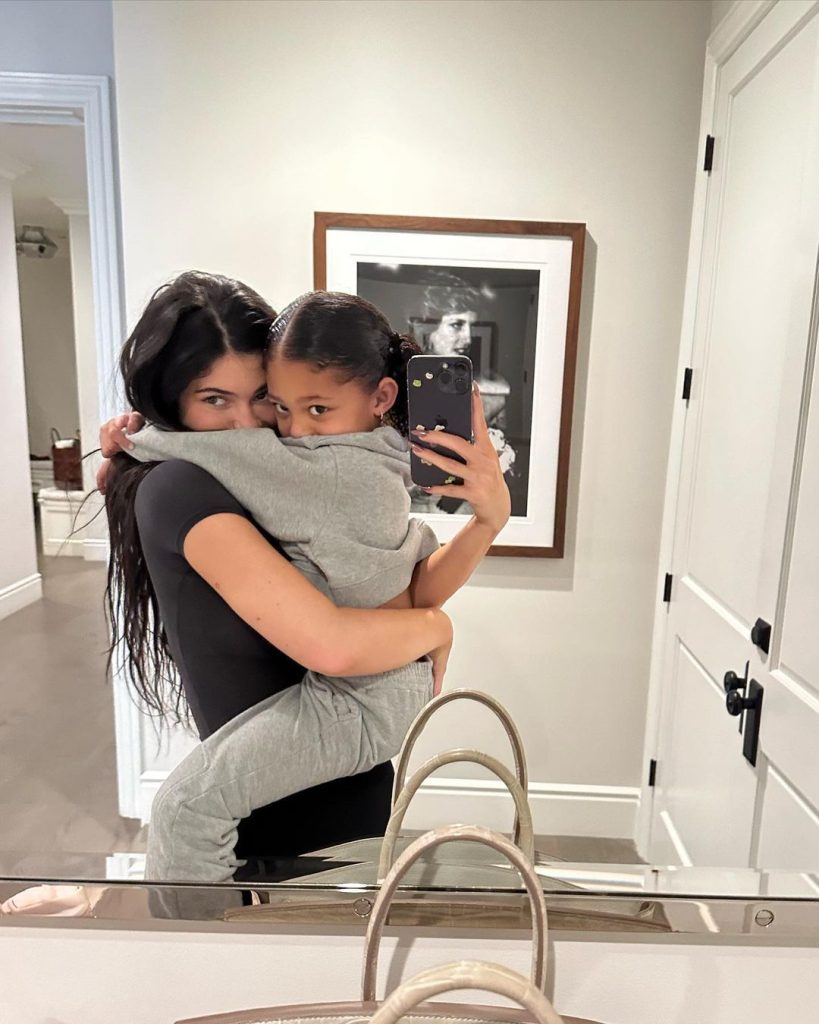 Image Source: Harper's BAZAAR
Image Source: Harper's BAZAARIf your parents fail to provide emotional or practical support during challenging times or important milestones, it may indicate an unhealthy relationship. Without their support, you may feel alone and unsupported, affecting your overall well-being and sense of belonging.
Overly Controlling Behavior
 Image Source: The Today Show
Image Source: The Today ShowParents who excessively control your actions, decisions, and personal life can hinder your autonomy and prevent you from developing a sense of independence. Their need to dictate every aspect of your life can stifle your growth and prevent you from making your own choices.
Neglect or Absence
 Image Source: Reddit
Image Source: RedditWhen parents are physically or emotionally absent from your life, it can lead to feelings of abandonment, insecurity, and a lack of trust in relationships. Their absence can create a void that leaves you longing for their presence and affects your ability to form healthy attachments.
Verbal or Physical Abuse
 Image Source: Filter Free Parents
Image Source: Filter Free ParentsAny form of abuse, whether it's verbal insults or physical aggression, is a clear indication of an unhealthy relationship that should never be tolerated. Such abusive behavior can cause significant emotional and physical harm, leaving lasting scars on your well-being.
Constant Comparison
 Image Source: Everything Jersey City
Image Source: Everything Jersey CityParents who constantly compare you to others, whether it's siblings or peers, can create an unhealthy atmosphere of competition and insecurity. Their comparisons can make you feel inadequate and create unhealthy sibling rivalries that damage relationships within the family.
Emotional Manipulation
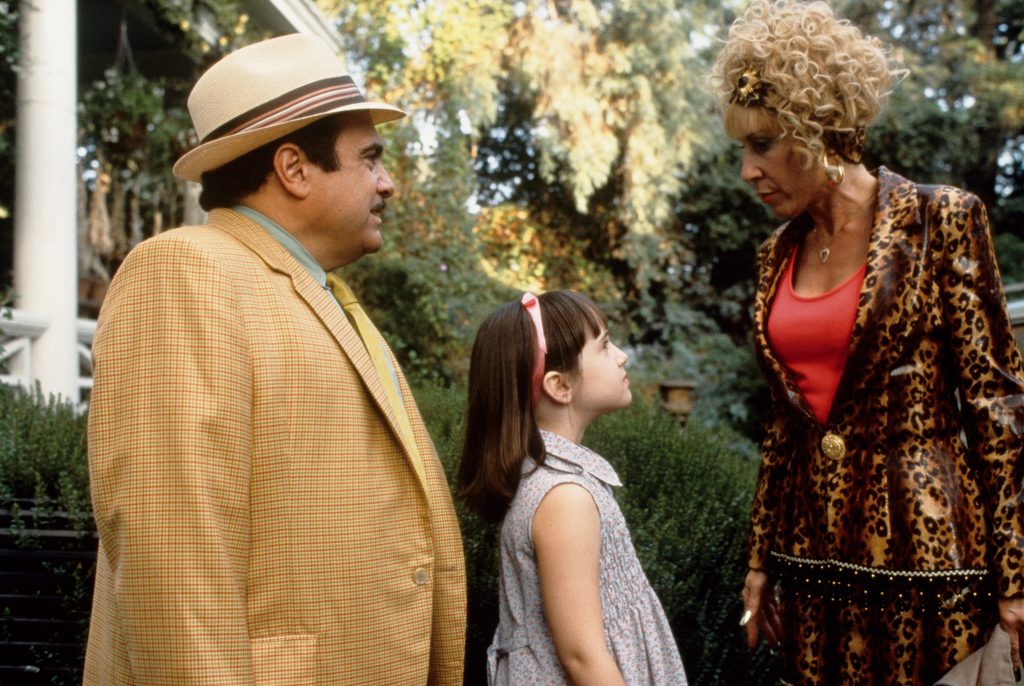 Image Source: IMDb
Image Source: IMDbManipulative tactics, such as guilt-tripping or emotional blackmail, are signs of an unhealthy relationship and can be damaging to your mental well-being. When your parents use these tactics, it can be emotionally exhausting and leave you feeling manipulated and powerless.
Lack of Boundaries
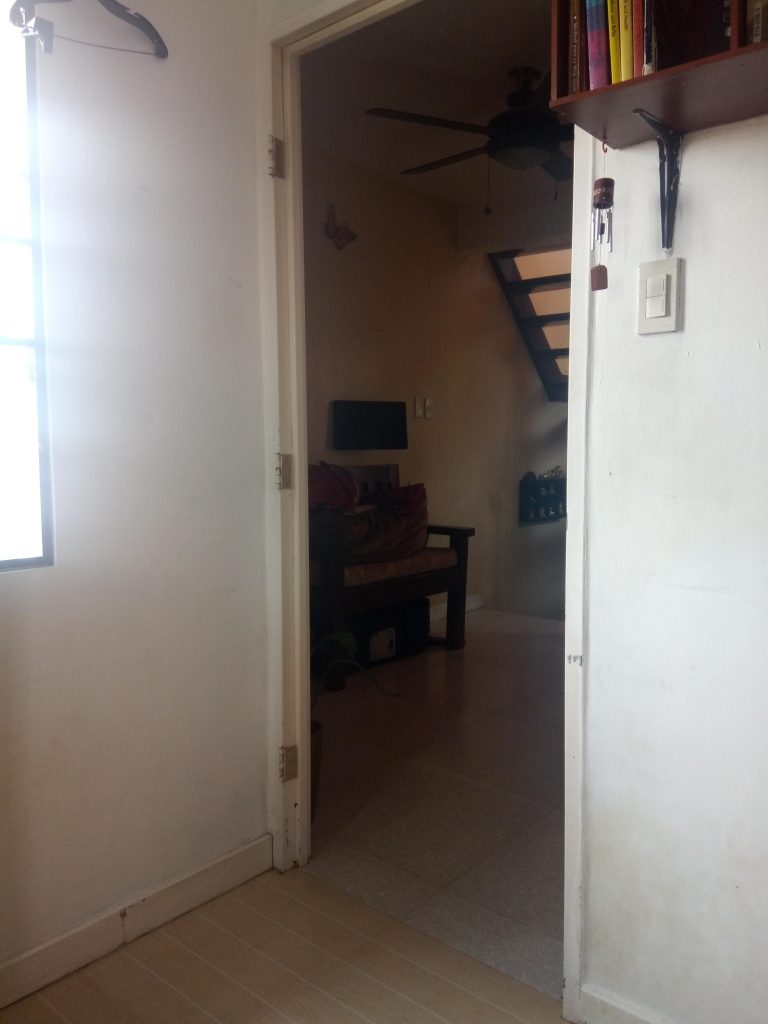 Image Source: Reddit
Image Source: RedditIf your parents consistently disregard your personal boundaries, invade your privacy, or fail to respect your autonomy, it can lead to a strained and unhealthy relationship. Your need for personal space and autonomy may not be honored, causing frustration and hindering healthy parent-child interactions.
Unresolved Conflict
 Image Source: Mamamia
Image Source: MamamiaChronic unresolved conflicts or a pattern of frequent arguments without resolution can indicate underlying issues in the parent-child relationship. When conflicts are left unresolved, resentment can build, and communication may deteriorate further, intensifying the unhealthy dynamics.
Conditional Love
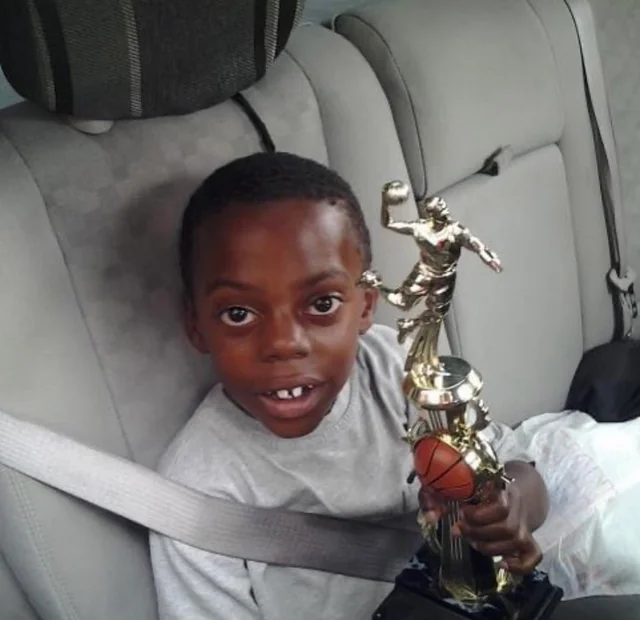 Image Source: Reddit
Image Source: RedditLove should be unconditional, but if your parents only express love and affection when you meet their expectations or fulfill certain conditions, it can be a sign of an unhealthy relationship. Feeling loved only when you conform to their desires can lead to feelings of unworthiness and emotional distress.
Lack of Trust
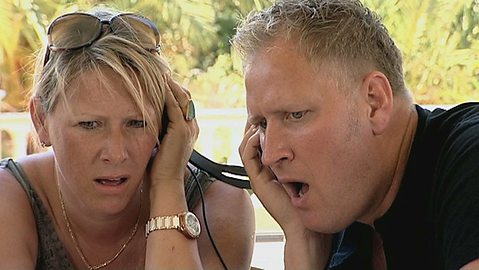 Image Source: Cultured Vultures
Image Source: Cultured VulturesTrust is the foundation of any healthy relationship. If you constantly feel mistrusted or your parents are overly suspicious of your actions, it can indicate an unhealthy dynamic. The lack of trust can hinder open communication and create a sense of unease and tension in the relationship.
Emotional Neglect
 Image Source: Reddit
Image Source: RedditEmotional neglect occurs when parents fail to provide emotional support, validation, or empathy, leaving you feeling emotionally disconnected and unimportant. The lack of emotional nurturing can leave you feeling unheard and unsupported, affecting your overall emotional well-being.
Dismissive Attitude
 Image Source: Junkee
Image Source: JunkeeParents who dismiss your feelings, opinions, or achievements, belittling your experiences, can create a toxic environment that damages your self-worth. Their dismissive attitude can make you feel invalidated and unimportant, hindering your self-confidence and growth.
Gaslighting
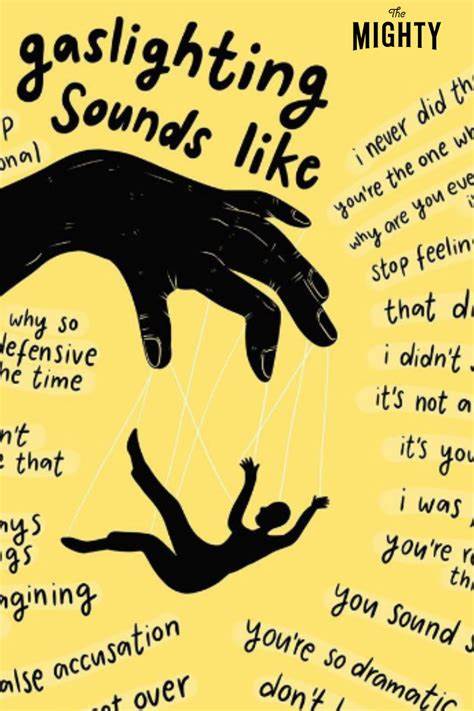 Image Source: The Gaia GirlX
Image Source: The Gaia GirlXGaslighting involves distorting or denying reality to make you doubt your own perceptions and sanity. It's a manipulative tactic that can be present in unhealthy parent-child relationships. Gaslighting can lead to confusion, self-doubt, and a skewed perception of reality, impacting your mental health.
Lack of Communication
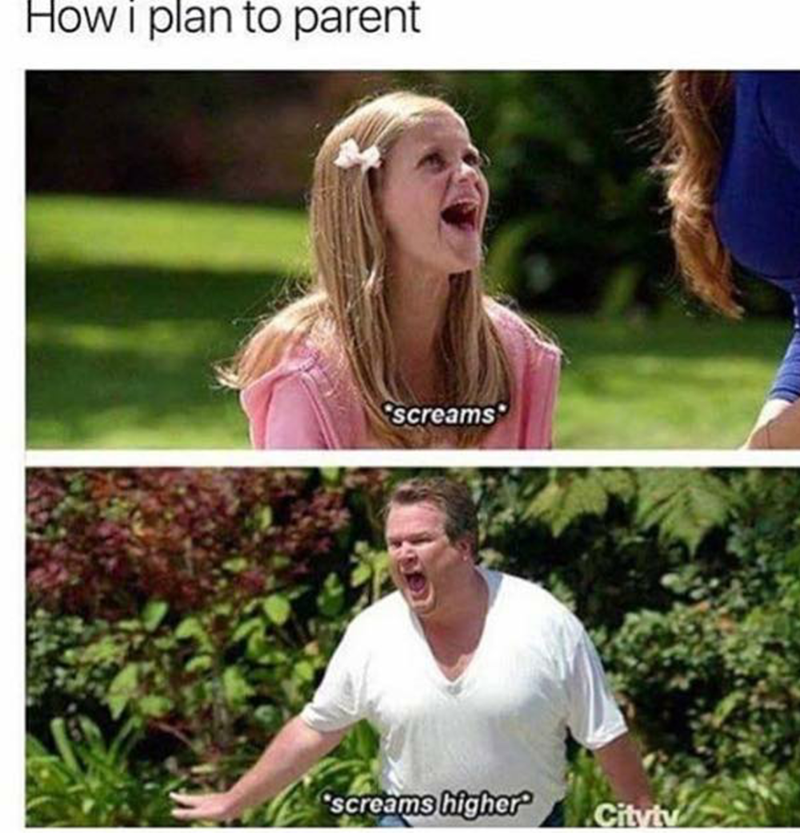 Image Source: Cheezburger
Image Source: CheezburgerEffective communication is vital in any healthy relationship. If there is a constant breakdown in communication or a lack of open dialogue with your parents, it can contribute to an unhealthy dynamic. Poor communication can lead to misunderstandings, resentment, and unresolved issues.
Emotional Instability
 Image Source: Reddit
Image Source: RedditParents who exhibit extreme mood swings, emotional volatility, or unpredictable behavior can create an unstable and unhealthy environment for their children. Living with emotional instability can make you feel on edge, anxious, and uncertain about your interactions with your parents.
Excessive Pressure
 Image Source: USA Today
Image Source: USA TodayParents who constantly pressure you to excel academically, professionally, or in any specific area can contribute to stress, anxiety, and a sense of inadequacy. The relentless pressure to meet their expectations can be overwhelming and detrimental to your mental well-being.
Lack of Empathy
 Image Source: Reddit
Image Source: RedditEmpathy is the ability to understand and share the feelings of others. If your parents consistently lack empathy towards you, it can be a sign of an unhealthy relationship. Feeling unheard and invalidated can lead to emotional distress and a sense of isolation.
One-Way Communication
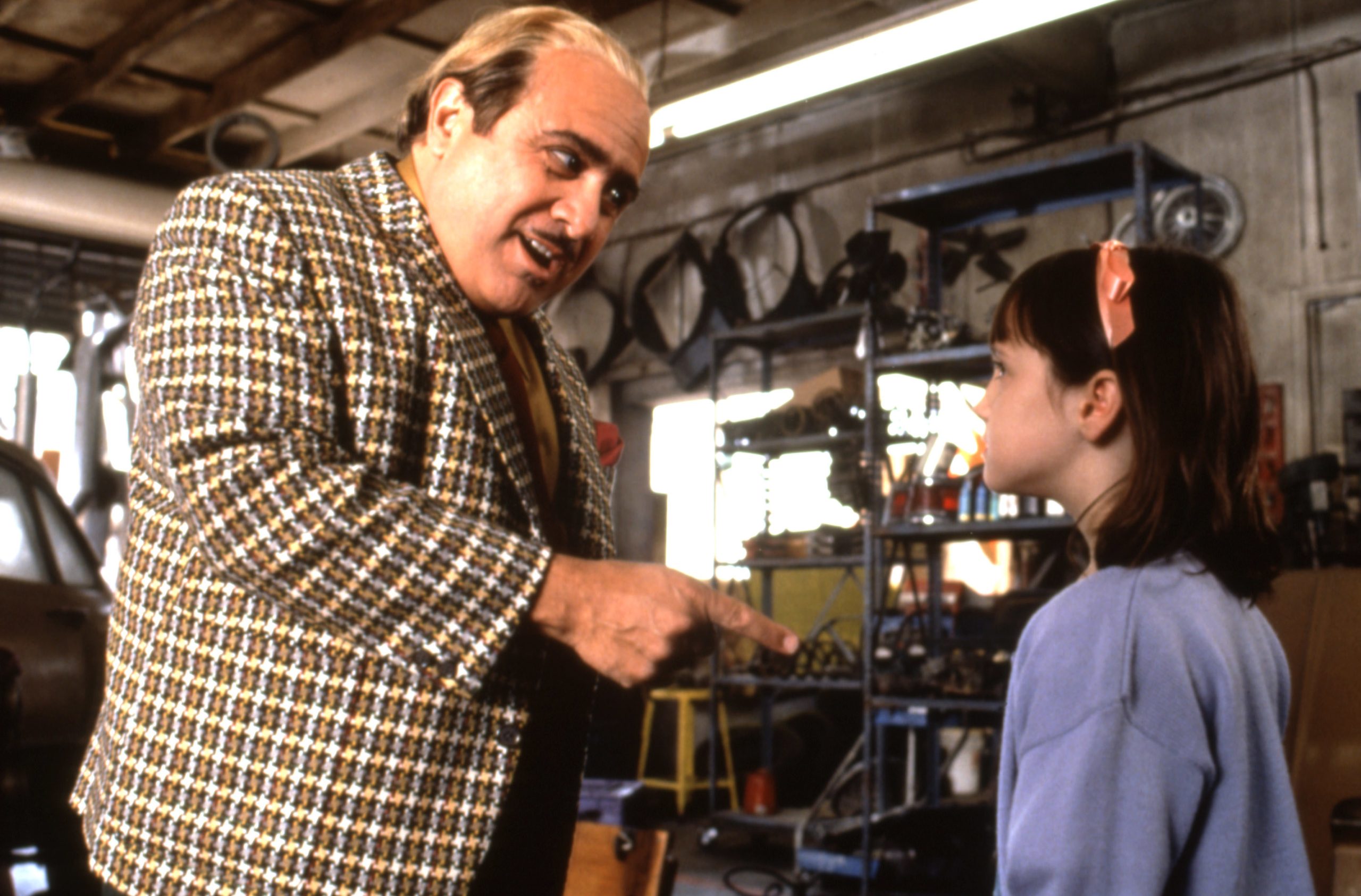 Image Source: BuzzFeed
Image Source: BuzzFeedIf your parents dominate conversations, rarely listen to your thoughts or feelings, and dismiss your opinions, it can indicate an unhealthy power dynamic. One-way communication prevents healthy dialogue and mutual understanding, leaving you feeling unheard and undervalued.
Favoritism
 Image Source: Reddit
Image Source: RedditWhen parents consistently favor one sibling over others, it can breed jealousy, resentment, and feelings of inadequacy, leading to an unhealthy relationship among family members. Favoritism can create a divisive and competitive atmosphere that damages sibling relationships and overall family dynamics.
Lack of Emotional Safety
 Image Source: Reddit
Image Source: RedditFeeling unsafe expressing your emotions or sharing vulnerable experiences with your parents can indicate an unhealthy relationship that lacks emotional support. The absence of emotional safety can make you suppress your true emotions and hinder genuine connections with your parents.
Inability to Apologize
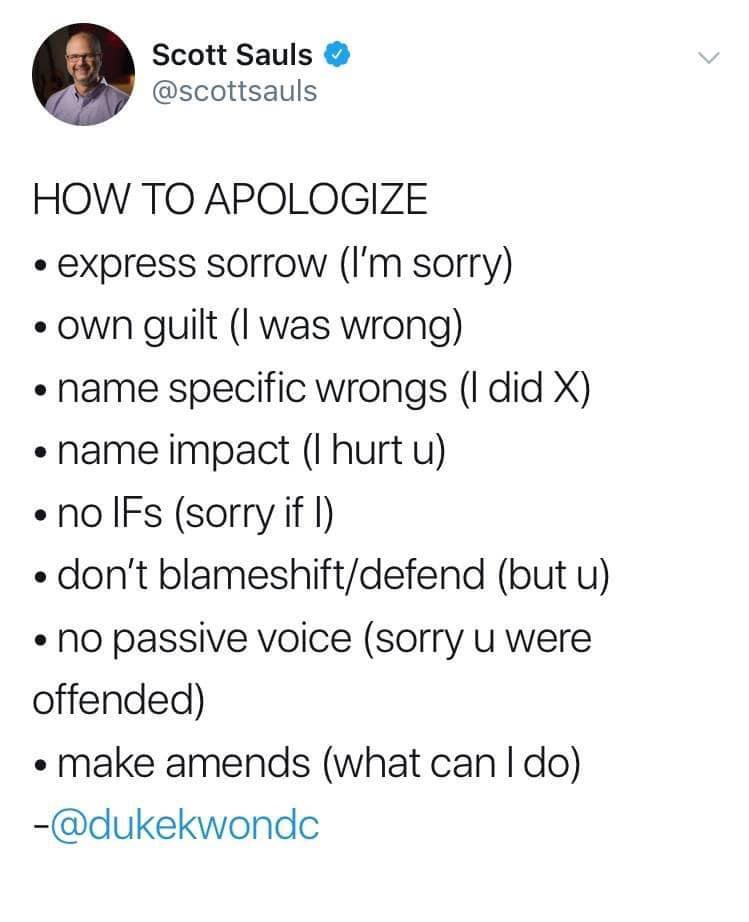 Image Source: Reddit
Image Source: RedditIf your parents never take responsibility for their mistakes or refuse to apologize when they've hurt you, it can create a toxic and unhealthy dynamic. The lack of accountability can prevent healing and hinder the development of trust and forgiveness in the relationship.
Lack of Validation
 Image Source: Farm Fresh for Life
Image Source: Farm Fresh for LifeParents who consistently invalidate your feelings or experiences by dismissing or minimizing them can damage your self-esteem and emotional well-being. The need for validation and understanding is essential for healthy emotional development, and without it, you may struggle with self-doubt and diminished self-worth.
Enmeshment
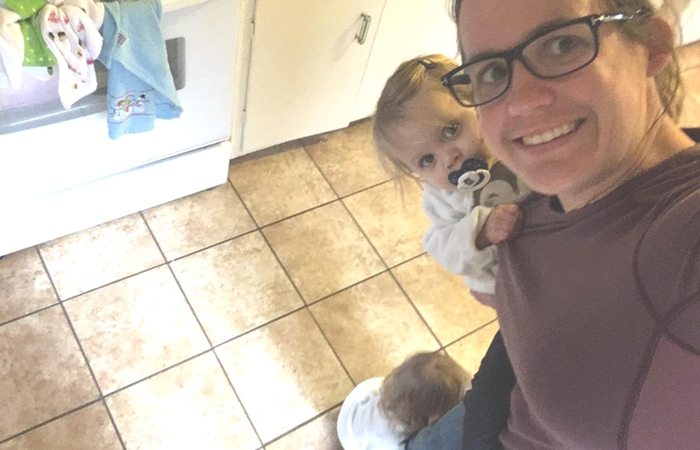 Image Source: Twiniversity
Image Source: TwiniversityEnmeshment occurs when boundaries between family members are blurred and personal identities are compromised. It can lead to an unhealthy dependency on parents and a lack of individuality. Enmeshed relationships can hinder personal growth and autonomy, leaving you feeling overwhelmed and lost within the family dynamic.
Constant Pressure to Conform
 Image Source: Time
Image Source: TimeIf your parents consistently pressure you to conform to their expectations, beliefs, or values without allowing you to explore your own identity, it can hinder personal growth and lead to an unhealthy relationship. The pressure to conform can stifle your individuality and prevent you from embracing your true self.
Emotional Black Hole
 Image Source: Emily & Joel
Image Source: Emily & JoelParents who are emotionally unavailable and unwilling to engage in meaningful conversations or express love can create a void that leaves you feeling unimportant and emotionally drained. The absence of emotional connection can leave you longing for affection and support, impacting your overall emotional well-being.
Lack of Appreciation
 Image Source: Pinterest
Image Source: PinterestWhen your efforts, achievements, or contributions go unnoticed or unappreciated by your parents, it can undermine your self-worth and contribute to an unhealthy relationship. Feeling unappreciated can lead to a sense of resentment and diminish your motivation to strive for success.
Codependency
 Image Source: Good Housekeeping
Image Source: Good HousekeepingCodependent relationships involve an excessive reliance on each other for emotional needs. If you have a codependent relationship with your parents, it can hinder your ability to develop healthy independence. Codependency can create an unhealthy sense of enmeshment, leading to difficulties in forming and maintaining healthy relationships outside the family.
Constant Guilt-Tripping
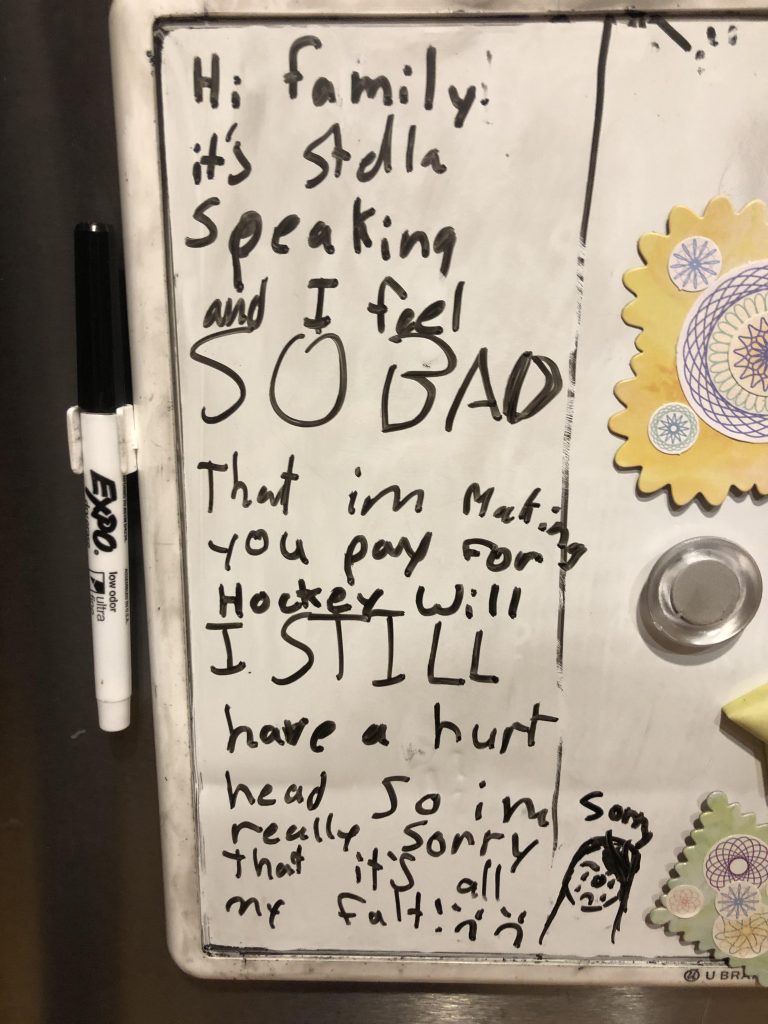 Image Source: Reddit
Image Source: RedditParents who consistently use guilt as a means to control your actions or decisions can create a toxic environment that breeds resentment and damages the parent-child relationship. Guilt-tripping can undermine your sense of autonomy and prevent you from making decisions based on your own desires and needs.
Lack of Emotional Boundaries
 Image Source: Blooms and Bubbles
Image Source: Blooms and BubblesWhen parents expect you to fulfill their emotional needs or act as their emotional caretaker, it can blur the boundaries between parent and child, resulting in an unhealthy relationship. The lack of emotional boundaries can create a sense of responsibility beyond your capacity, leading to emotional exhaustion and strained relationships.
Criticism about appearance/body shaming

image source: reddit.com
Your parents are supposed to boost your confidence when it comes to your appearance, and definitely never say anything that makes you feel bad about yourself! They might even white lie about whether you've put on weight or look a mess (anything that makes you feel bad) just to try and make you feel better. So it's a bad sign if they openly criticize or body shame you, especially if you have nothing to feel bad about in the first place.
Belittling from the parent
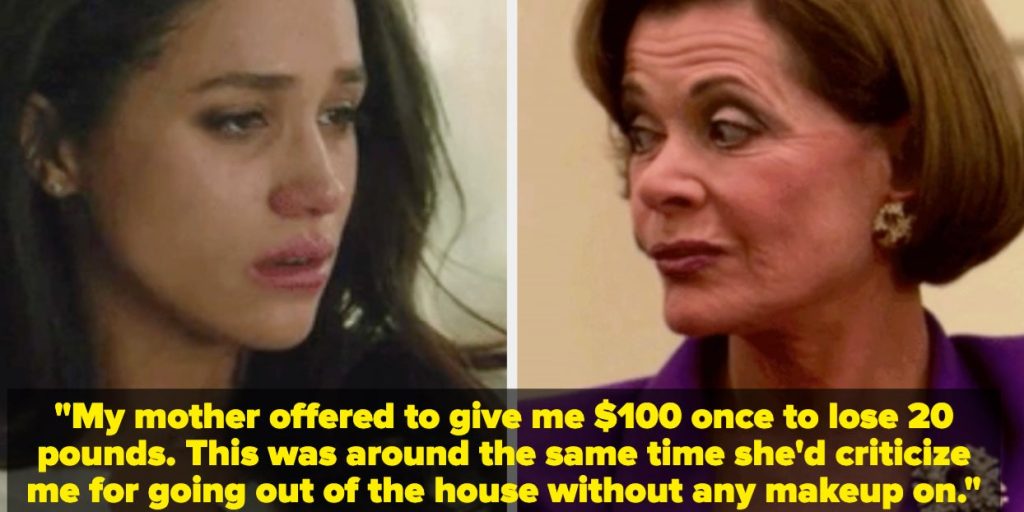
image source: BuzzFeed
As well as body shaming, belittling is something else a parent should never do to their child, as it can make them feel bad about themselves and completely knock their confidence. Belittling can often be done through verbal means, with a parent constantly berating their child by saying things like 'you're a disappointment' or calling them useless if they can't do simple tasks around the house that they ask them to do.
Blaming and shaming
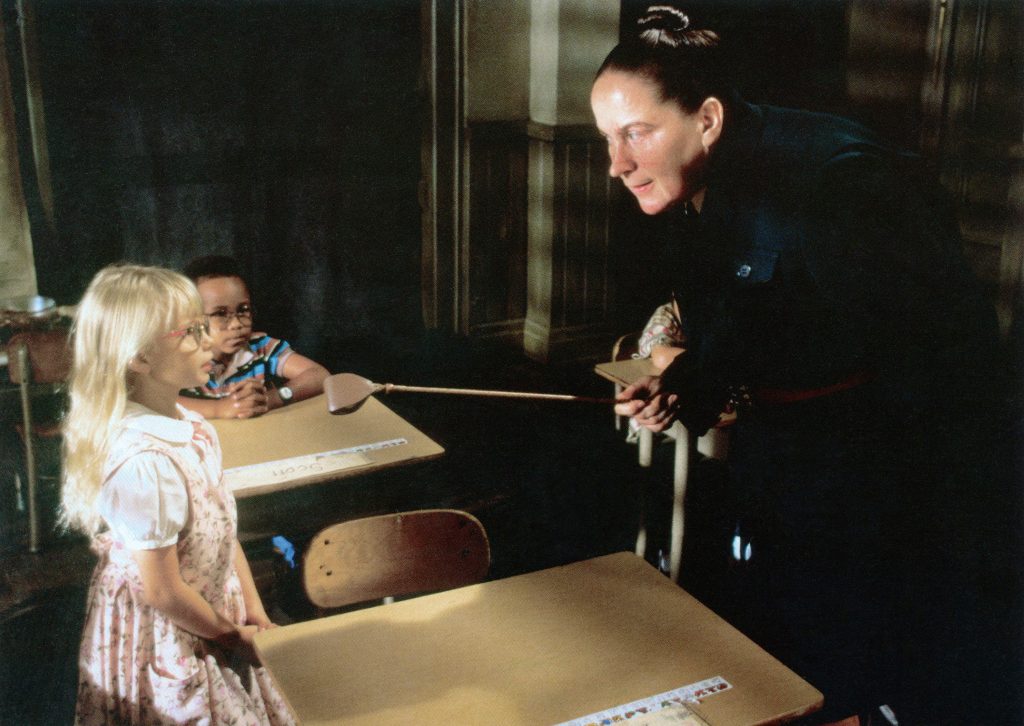
image source: BuzzFeed
It's one thing for parents to blame children for everyday things they've done wrong - which sometimes is fair, if a child needs to be blamed if they've been acting naughty! But it's another thing entirely to blame a child for huge things they had nothing to do with, and shame them for things they shouldn't feel ashamed about. This could be blaming the child for the parent's unhappy life, or shaming them for being born.
Making the child feel like they'll never find love

image source: reddit.com
It's difficult enough for a child to grow up and get to grips with their romantic needs, start dating and hope to find love. This should always be supported by a loving parent who's there if things go wrong - or right. But an unhealthy parent/child relationship can see the parent knocking the child back before they've even started, like telling them they'll never find love, or saying things about their looks and body as a reason that 'nobody will ever date them'.
The parent trying to be supportive - while dismissing emotional needs

image source: reddit.com
There's a certain idea of not keeping your child in bubble - a child needs to be exposed to things, and get hurt, in order to learn about the world. Sometimes, a parent trying to be overly supportive can be just as unhealthy as one not being supportive at all. If a child is upset about something, one of the worst things a parent can do is say 'you're okay' or 'there's no need to be upset'. It's better to let the child be upset and understand their feelings.
Telling you to ignore things if they're bothering you

image source: reddit.com
Children will always bring up things with their parents that are bugging them, whether it's something really small like they hate how their coat fits, to something more of a serious issue, like a person bullying them at school. Oftentimes, a parent saying 'just ignore it' is not a helpful solution, and this can be a really unhealthy thing to do, especially if the situation can get worse even if the child ignores it.
Telling the child to 'toughen up'
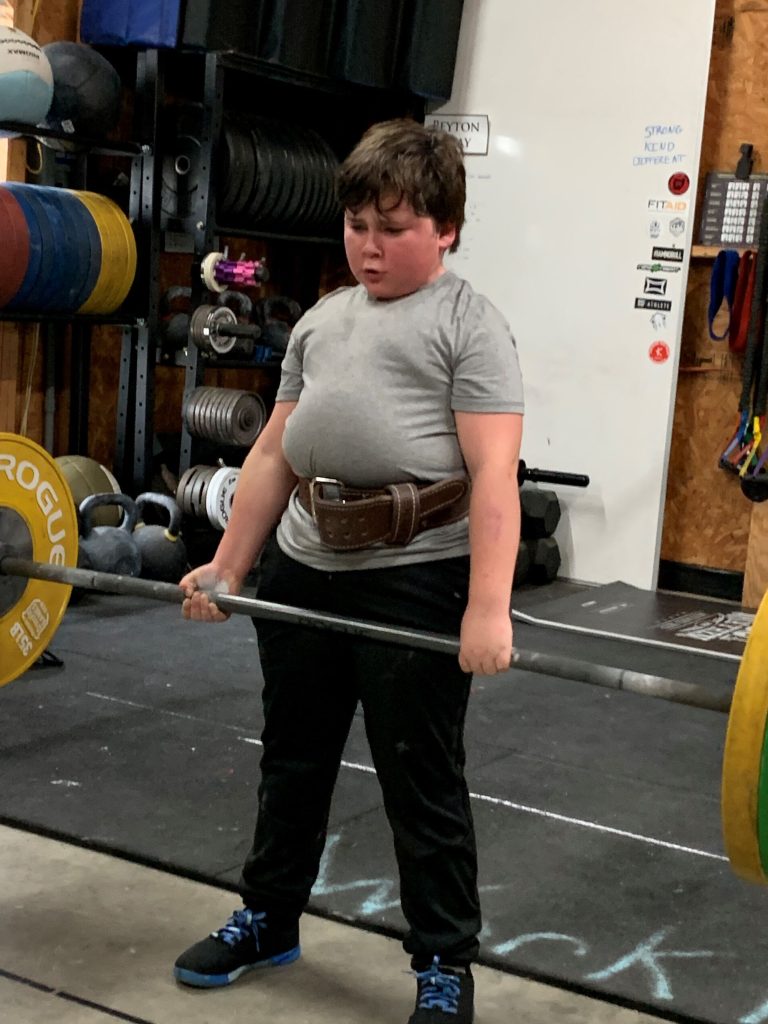
image source: CNN
Children need to learn to be strong, but this shouldn't come at the cost of understanding their emotions or being upset. Especially with young boys, telling them to 'toughen up' or 'be a man' instead of embracing their sensitive side is the wrong thing to do. It can be unhealthy for a parent to instil this idea of a child needing to be 'tough' and stop crying or to stop 'being so emotional' all the time!
Acting completely different in public

image source: Best Life
It's never going to be a good sign if a parent acts completely different with their child in public, because it just means they're either doing something they know is wrong behind closed doors - like being unsupportive or body shaming - or showing that they're quite a two-faced person, which is only going to serve to confuse the child! If you have a healthy child/parent relationship, there's no reason that should change in front of other people.
Not helping with understanding money

image source: reddit.com
A parent should support their child in all walks of life, and one of the biggest responsibilities a child can learn when growing into an adult is how to handle money and finances. If a parent doesn't have a very healthy relationship with money themselves, this can often pass onto the child - which can be a red flag. If your parents never taught you to be good with money, or didn't think it important enough to discuss, this is a sign.
Cooking meals based on their perception of a child's weight

image source: reddit.com
Parents should definitely make sure they're feeding growing children in a healthy way, but if parents are limiting calories or being strict about meals they cook for their child based on incorrect assumptions about their appearance, this is toxic. If a child is completely healthy but a parent is saying they're getting fat and then gives them tiny portions on a plate, this is a very unhealthy way of dealing with things!
Pointing out things that are wrong with other people

image source: Twitter
Your parent might not directly tell you as a child the things that are wrong with you, or frowned upon, but that doesn't mean it's a healthy relationship if they're doing it to other people. Your parent might take you out in a public place as a child and point out all the things that are wrong with other people your age, like saying 'I hope you don't ever get fat like that' or 'I'm glad you don't dress like that'. It just makes you think negatively of that type of appearance.
Asking for professional advice about appearance

image source: reddit.com
An unhealthy relationship might also see a parent actively seeking advice from professionals for something they deem wrong with you, without speaking to you or when you're far too young. This could making a doctor's appointment because they're concerned about your weight when there's nothing wrong with you, or even going so far as to consult beauticians or plastic surgeons on things they think you need to change.
Making a child dread a particular age or stage of life

image source: reddit.com
There are certain ages in a young person's mind - especially as a woman - that we've learned to pay attention to. Most of the time, this is the '30's' as this is where people start to think about fertility or body changes. The worst thing a parent can do is instill this fear in their growing child's mind about certain ages, as though it's 'all downhill from there' or they only have a limited time to 'get on track' before they hit a certain age!
Telling your child they're only getting bullied because the person likes them

image source: Vanity Fair
We know that in some cases - especially in the movies - that boy in class who's picking on the girl is actually secretly in love with her, and the idea that people only tease because they have a crush. What can be damaging, though, is a child going to their parent to report a bully or a person making life difficult for them, only for the parent to dismiss it and say 'oh they're only doing it because they like you!'.
Saying that the sign of growing up is stopping crying

image source: brightside.me
We know a lot of parents might say 'big girls/boys don't cry!' when they're toddler is having a tantrum. What can be a healthy mentality though is a parent constantly badgering a child about them getting upset and crying, making them think the only acceptable way to be an adult is to stop crying and to stop being a 'baby' instead of teaching that crying is actually okay no matter what age you are!
Always saying 'there are two sides to the story'

image source: reddit.com
Of course this can be true, and it's always important to empathise - but for a child growing up who needs support from their parents, this can often be an unhealthy viewpoint. If the child is going to their parent for advice or to tell them they're upset about something, instead of validating their feelings, the parents might be dismissive and just say there are two sides to the story (in other words, 'your opinion doesn't really matter').
Dismissing mental health issues
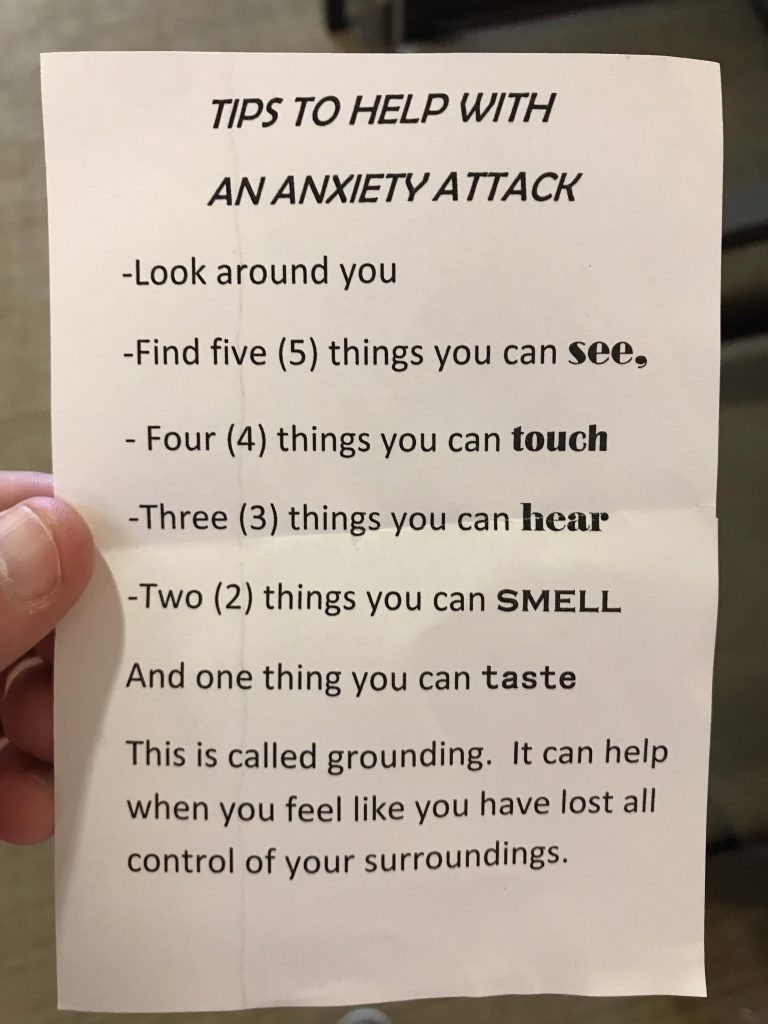
image source: reddit.com
More and more growing children and young people these days are dealing with mental health struggles like anxiety or depression. Having an unhealthy relationship with your parents might see them never taking your struggles seriously, especially because mental health problems often have no physical proof. You might tell them you feel anxious, severely low, crying for no reason, tired all the time... only for them to dismiss that there's anything wrong because 'everything is fine and you have a great life'.
Taking the friend's side instead of the child's
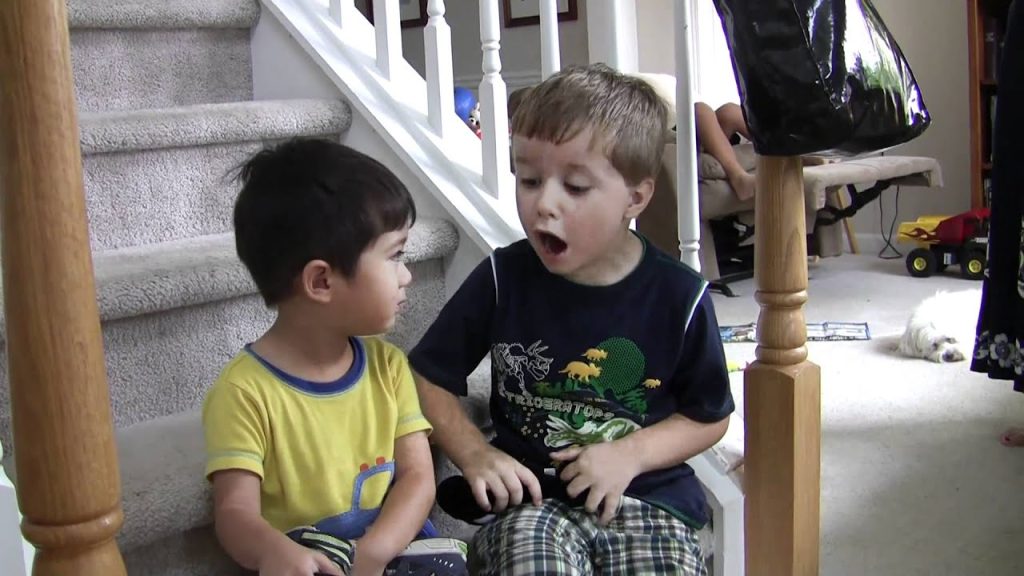
image source: YouTube
Children get into a lot of fallouts with friends, and even adult children fallout with besties a lot of the time. People can often use their parents as a go-to to vent about something their friend did to upset them, or a troubling situation they're having with their friend. It can be a red flag if your parent fails to validate your feelings at all, tells you that the friend is right and you're wrong, and takes their side every time.
Telling the child they have a lot to be grateful for
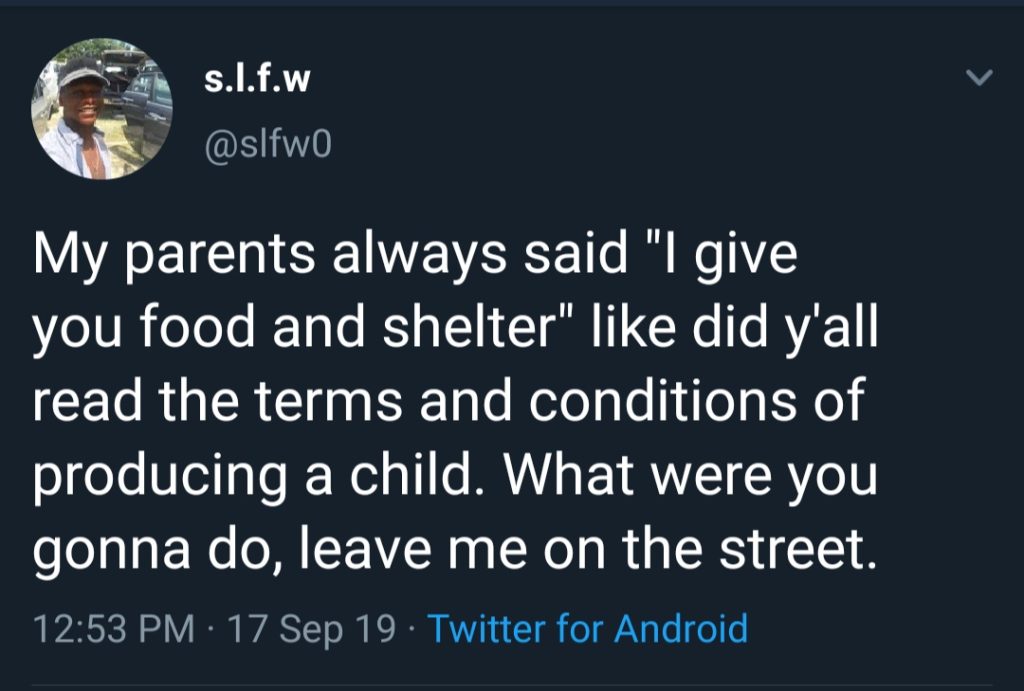
image source: reddit.com
This can also come under the point of dismissing mental health struggles. If a child brings up a negative feeling they're having, or the fact they're not happy with their life, one of the worst things a parent can do is to tell them they shouldn't be feeling that way because they have a lot to be grateful for. If they have food on the table, friends and a roof over their head, why should they be complaining? This is what their viewpoint might be.
Encouraging independence too much

image source: from1girlto1world.com
Letting your child build independence at a young age is extremely important, but it's also important to teach a child that it's okay for someone to ask for help when they need it. If a parent constantly tells their child they should do things for themselves, never ask for help, only look out for themselves and all the rest, this can be an unhealthy relationship developing - and an unhealthy mentality about independence.
 Image Source: Bored PandaWhen parents constantly criticize you, your choices, or your abilities, it can create an unhealthy dynamic that erodes your self-esteem and confidence. Their constant negative remarks can make you doubt yourself and hinder your personal growth and eventually make it hard to let this unhealthy belief go.Original content sourced from Femanin.com
Image Source: Bored PandaWhen parents constantly criticize you, your choices, or your abilities, it can create an unhealthy dynamic that erodes your self-esteem and confidence. Their constant negative remarks can make you doubt yourself and hinder your personal growth and eventually make it hard to let this unhealthy belief go.Original content sourced from Femanin.com Image Source: Harper's BAZAARIf your parents fail to provide emotional or practical support during challenging times or important milestones, it may indicate an unhealthy relationship. Without their support, you may feel alone and unsupported, affecting your overall well-being and sense of belonging.
Image Source: Harper's BAZAARIf your parents fail to provide emotional or practical support during challenging times or important milestones, it may indicate an unhealthy relationship. Without their support, you may feel alone and unsupported, affecting your overall well-being and sense of belonging. Image Source: The Today ShowParents who excessively control your actions, decisions, and personal life can hinder your autonomy and prevent you from developing a sense of independence. Their need to dictate every aspect of your life can stifle your growth and prevent you from making your own choices.
Image Source: The Today ShowParents who excessively control your actions, decisions, and personal life can hinder your autonomy and prevent you from developing a sense of independence. Their need to dictate every aspect of your life can stifle your growth and prevent you from making your own choices. Image Source: RedditWhen parents are physically or emotionally absent from your life, it can lead to feelings of abandonment, insecurity, and a lack of trust in relationships. Their absence can create a void that leaves you longing for their presence and affects your ability to form healthy attachments.
Image Source: RedditWhen parents are physically or emotionally absent from your life, it can lead to feelings of abandonment, insecurity, and a lack of trust in relationships. Their absence can create a void that leaves you longing for their presence and affects your ability to form healthy attachments. Image Source: Filter Free ParentsAny form of abuse, whether it's verbal insults or physical aggression, is a clear indication of an unhealthy relationship that should never be tolerated. Such abusive behavior can cause significant emotional and physical harm, leaving lasting scars on your well-being.
Image Source: Filter Free ParentsAny form of abuse, whether it's verbal insults or physical aggression, is a clear indication of an unhealthy relationship that should never be tolerated. Such abusive behavior can cause significant emotional and physical harm, leaving lasting scars on your well-being. Image Source: Everything Jersey CityParents who constantly compare you to others, whether it's siblings or peers, can create an unhealthy atmosphere of competition and insecurity. Their comparisons can make you feel inadequate and create unhealthy sibling rivalries that damage relationships within the family.
Image Source: Everything Jersey CityParents who constantly compare you to others, whether it's siblings or peers, can create an unhealthy atmosphere of competition and insecurity. Their comparisons can make you feel inadequate and create unhealthy sibling rivalries that damage relationships within the family. Image Source: IMDbManipulative tactics, such as guilt-tripping or emotional blackmail, are signs of an unhealthy relationship and can be damaging to your mental well-being. When your parents use these tactics, it can be emotionally exhausting and leave you feeling manipulated and powerless.
Image Source: IMDbManipulative tactics, such as guilt-tripping or emotional blackmail, are signs of an unhealthy relationship and can be damaging to your mental well-being. When your parents use these tactics, it can be emotionally exhausting and leave you feeling manipulated and powerless. Image Source: RedditIf your parents consistently disregard your personal boundaries, invade your privacy, or fail to respect your autonomy, it can lead to a strained and unhealthy relationship. Your need for personal space and autonomy may not be honored, causing frustration and hindering healthy parent-child interactions.
Image Source: RedditIf your parents consistently disregard your personal boundaries, invade your privacy, or fail to respect your autonomy, it can lead to a strained and unhealthy relationship. Your need for personal space and autonomy may not be honored, causing frustration and hindering healthy parent-child interactions. Image Source: MamamiaChronic unresolved conflicts or a pattern of frequent arguments without resolution can indicate underlying issues in the parent-child relationship. When conflicts are left unresolved, resentment can build, and communication may deteriorate further, intensifying the unhealthy dynamics.
Image Source: MamamiaChronic unresolved conflicts or a pattern of frequent arguments without resolution can indicate underlying issues in the parent-child relationship. When conflicts are left unresolved, resentment can build, and communication may deteriorate further, intensifying the unhealthy dynamics. Image Source: RedditLove should be unconditional, but if your parents only express love and affection when you meet their expectations or fulfill certain conditions, it can be a sign of an unhealthy relationship. Feeling loved only when you conform to their desires can lead to feelings of unworthiness and emotional distress.
Image Source: RedditLove should be unconditional, but if your parents only express love and affection when you meet their expectations or fulfill certain conditions, it can be a sign of an unhealthy relationship. Feeling loved only when you conform to their desires can lead to feelings of unworthiness and emotional distress. Image Source: Cultured VulturesTrust is the foundation of any healthy relationship. If you constantly feel mistrusted or your parents are overly suspicious of your actions, it can indicate an unhealthy dynamic. The lack of trust can hinder open communication and create a sense of unease and tension in the relationship.
Image Source: Cultured VulturesTrust is the foundation of any healthy relationship. If you constantly feel mistrusted or your parents are overly suspicious of your actions, it can indicate an unhealthy dynamic. The lack of trust can hinder open communication and create a sense of unease and tension in the relationship. Image Source: RedditEmotional neglect occurs when parents fail to provide emotional support, validation, or empathy, leaving you feeling emotionally disconnected and unimportant. The lack of emotional nurturing can leave you feeling unheard and unsupported, affecting your overall emotional well-being.
Image Source: RedditEmotional neglect occurs when parents fail to provide emotional support, validation, or empathy, leaving you feeling emotionally disconnected and unimportant. The lack of emotional nurturing can leave you feeling unheard and unsupported, affecting your overall emotional well-being. Image Source: JunkeeParents who dismiss your feelings, opinions, or achievements, belittling your experiences, can create a toxic environment that damages your self-worth. Their dismissive attitude can make you feel invalidated and unimportant, hindering your self-confidence and growth.
Image Source: JunkeeParents who dismiss your feelings, opinions, or achievements, belittling your experiences, can create a toxic environment that damages your self-worth. Their dismissive attitude can make you feel invalidated and unimportant, hindering your self-confidence and growth. Image Source: The Gaia GirlXGaslighting involves distorting or denying reality to make you doubt your own perceptions and sanity. It's a manipulative tactic that can be present in unhealthy parent-child relationships. Gaslighting can lead to confusion, self-doubt, and a skewed perception of reality, impacting your mental health.
Image Source: The Gaia GirlXGaslighting involves distorting or denying reality to make you doubt your own perceptions and sanity. It's a manipulative tactic that can be present in unhealthy parent-child relationships. Gaslighting can lead to confusion, self-doubt, and a skewed perception of reality, impacting your mental health. Image Source: CheezburgerEffective communication is vital in any healthy relationship. If there is a constant breakdown in communication or a lack of open dialogue with your parents, it can contribute to an unhealthy dynamic. Poor communication can lead to misunderstandings, resentment, and unresolved issues.
Image Source: CheezburgerEffective communication is vital in any healthy relationship. If there is a constant breakdown in communication or a lack of open dialogue with your parents, it can contribute to an unhealthy dynamic. Poor communication can lead to misunderstandings, resentment, and unresolved issues. Image Source: RedditParents who exhibit extreme mood swings, emotional volatility, or unpredictable behavior can create an unstable and unhealthy environment for their children. Living with emotional instability can make you feel on edge, anxious, and uncertain about your interactions with your parents.
Image Source: RedditParents who exhibit extreme mood swings, emotional volatility, or unpredictable behavior can create an unstable and unhealthy environment for their children. Living with emotional instability can make you feel on edge, anxious, and uncertain about your interactions with your parents. Image Source: USA TodayParents who constantly pressure you to excel academically, professionally, or in any specific area can contribute to stress, anxiety, and a sense of inadequacy. The relentless pressure to meet their expectations can be overwhelming and detrimental to your mental well-being.
Image Source: USA TodayParents who constantly pressure you to excel academically, professionally, or in any specific area can contribute to stress, anxiety, and a sense of inadequacy. The relentless pressure to meet their expectations can be overwhelming and detrimental to your mental well-being. Image Source: RedditEmpathy is the ability to understand and share the feelings of others. If your parents consistently lack empathy towards you, it can be a sign of an unhealthy relationship. Feeling unheard and invalidated can lead to emotional distress and a sense of isolation.
Image Source: RedditEmpathy is the ability to understand and share the feelings of others. If your parents consistently lack empathy towards you, it can be a sign of an unhealthy relationship. Feeling unheard and invalidated can lead to emotional distress and a sense of isolation. Image Source: BuzzFeedIf your parents dominate conversations, rarely listen to your thoughts or feelings, and dismiss your opinions, it can indicate an unhealthy power dynamic. One-way communication prevents healthy dialogue and mutual understanding, leaving you feeling unheard and undervalued.
Image Source: BuzzFeedIf your parents dominate conversations, rarely listen to your thoughts or feelings, and dismiss your opinions, it can indicate an unhealthy power dynamic. One-way communication prevents healthy dialogue and mutual understanding, leaving you feeling unheard and undervalued. Image Source: RedditWhen parents consistently favor one sibling over others, it can breed jealousy, resentment, and feelings of inadequacy, leading to an unhealthy relationship among family members. Favoritism can create a divisive and competitive atmosphere that damages sibling relationships and overall family dynamics.
Image Source: RedditWhen parents consistently favor one sibling over others, it can breed jealousy, resentment, and feelings of inadequacy, leading to an unhealthy relationship among family members. Favoritism can create a divisive and competitive atmosphere that damages sibling relationships and overall family dynamics. Image Source: RedditFeeling unsafe expressing your emotions or sharing vulnerable experiences with your parents can indicate an unhealthy relationship that lacks emotional support. The absence of emotional safety can make you suppress your true emotions and hinder genuine connections with your parents.
Image Source: RedditFeeling unsafe expressing your emotions or sharing vulnerable experiences with your parents can indicate an unhealthy relationship that lacks emotional support. The absence of emotional safety can make you suppress your true emotions and hinder genuine connections with your parents. Image Source: RedditIf your parents never take responsibility for their mistakes or refuse to apologize when they've hurt you, it can create a toxic and unhealthy dynamic. The lack of accountability can prevent healing and hinder the development of trust and forgiveness in the relationship.
Image Source: RedditIf your parents never take responsibility for their mistakes or refuse to apologize when they've hurt you, it can create a toxic and unhealthy dynamic. The lack of accountability can prevent healing and hinder the development of trust and forgiveness in the relationship. Image Source: Farm Fresh for LifeParents who consistently invalidate your feelings or experiences by dismissing or minimizing them can damage your self-esteem and emotional well-being. The need for validation and understanding is essential for healthy emotional development, and without it, you may struggle with self-doubt and diminished self-worth.
Image Source: Farm Fresh for LifeParents who consistently invalidate your feelings or experiences by dismissing or minimizing them can damage your self-esteem and emotional well-being. The need for validation and understanding is essential for healthy emotional development, and without it, you may struggle with self-doubt and diminished self-worth. Image Source: TwiniversityEnmeshment occurs when boundaries between family members are blurred and personal identities are compromised. It can lead to an unhealthy dependency on parents and a lack of individuality. Enmeshed relationships can hinder personal growth and autonomy, leaving you feeling overwhelmed and lost within the family dynamic.
Image Source: TwiniversityEnmeshment occurs when boundaries between family members are blurred and personal identities are compromised. It can lead to an unhealthy dependency on parents and a lack of individuality. Enmeshed relationships can hinder personal growth and autonomy, leaving you feeling overwhelmed and lost within the family dynamic. Image Source: TimeIf your parents consistently pressure you to conform to their expectations, beliefs, or values without allowing you to explore your own identity, it can hinder personal growth and lead to an unhealthy relationship. The pressure to conform can stifle your individuality and prevent you from embracing your true self.
Image Source: TimeIf your parents consistently pressure you to conform to their expectations, beliefs, or values without allowing you to explore your own identity, it can hinder personal growth and lead to an unhealthy relationship. The pressure to conform can stifle your individuality and prevent you from embracing your true self. Image Source: Emily & JoelParents who are emotionally unavailable and unwilling to engage in meaningful conversations or express love can create a void that leaves you feeling unimportant and emotionally drained. The absence of emotional connection can leave you longing for affection and support, impacting your overall emotional well-being.
Image Source: Emily & JoelParents who are emotionally unavailable and unwilling to engage in meaningful conversations or express love can create a void that leaves you feeling unimportant and emotionally drained. The absence of emotional connection can leave you longing for affection and support, impacting your overall emotional well-being. Image Source: PinterestWhen your efforts, achievements, or contributions go unnoticed or unappreciated by your parents, it can undermine your self-worth and contribute to an unhealthy relationship. Feeling unappreciated can lead to a sense of resentment and diminish your motivation to strive for success.
Image Source: PinterestWhen your efforts, achievements, or contributions go unnoticed or unappreciated by your parents, it can undermine your self-worth and contribute to an unhealthy relationship. Feeling unappreciated can lead to a sense of resentment and diminish your motivation to strive for success. Image Source: Good HousekeepingCodependent relationships involve an excessive reliance on each other for emotional needs. If you have a codependent relationship with your parents, it can hinder your ability to develop healthy independence. Codependency can create an unhealthy sense of enmeshment, leading to difficulties in forming and maintaining healthy relationships outside the family.
Image Source: Good HousekeepingCodependent relationships involve an excessive reliance on each other for emotional needs. If you have a codependent relationship with your parents, it can hinder your ability to develop healthy independence. Codependency can create an unhealthy sense of enmeshment, leading to difficulties in forming and maintaining healthy relationships outside the family. Image Source: RedditParents who consistently use guilt as a means to control your actions or decisions can create a toxic environment that breeds resentment and damages the parent-child relationship. Guilt-tripping can undermine your sense of autonomy and prevent you from making decisions based on your own desires and needs.
Image Source: RedditParents who consistently use guilt as a means to control your actions or decisions can create a toxic environment that breeds resentment and damages the parent-child relationship. Guilt-tripping can undermine your sense of autonomy and prevent you from making decisions based on your own desires and needs. Image Source: Blooms and BubblesWhen parents expect you to fulfill their emotional needs or act as their emotional caretaker, it can blur the boundaries between parent and child, resulting in an unhealthy relationship. The lack of emotional boundaries can create a sense of responsibility beyond your capacity, leading to emotional exhaustion and strained relationships.
Image Source: Blooms and BubblesWhen parents expect you to fulfill their emotional needs or act as their emotional caretaker, it can blur the boundaries between parent and child, resulting in an unhealthy relationship. The lack of emotional boundaries can create a sense of responsibility beyond your capacity, leading to emotional exhaustion and strained relationships.


















